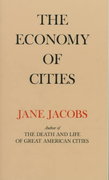Question
Respond to student's post with a substantive response. 1. After reviewing the professor's nota, the two types of data sources for measuring crime and victimization
Respond to student's post with a substantive response.
1. After reviewing the professor's nota, the two types of data sources for measuring crime and victimization are the Uniform Crime Reporting (UCR) and the National Crime Victimization Survey (NCVS). There are pros and cons to each data source. The pros of the UCR are that a long list of crimes that are reported to the UCR. It collects a lot of information about the crimes and details. The biggest con of the UCR is that it is voluntary, meaning that a lot of offenses are not brought to the police. The NCVS is good because it reaches millions of victims a year and surveys them regarding where things may have gone wrong. One of the biggest issues with this is the recall of the incident. These sources are compatible because in ways there compliment each other but they are different by how they report. UCR is better for finding statistics but the NCVS is better used for finding information left out of the report. It is possible to use both sources together to try and prevent crime.
2. Fear is something in our minds and everyone fears different things based on their life, struggles, and current state specifically anxiety. There are multiple methods for measuring fear. Surveys and measuring the perceptions of the individual. According to the Lab (2020), fear also can be measured by the classification scheme. The classification taps are judgments of risk, values, and emotions. The people most likely to fear crime are people of lower socioeconomic status. According to the School of Criminology and Criminal Justice, Griffith University fear of Crime video, 90% of the people living in an area that was more wealthy and suburban believed an attack wouldn't happen within the next month whereas, in the city area, 47% of people said there would be an attack. There is a lack of connection between fear and crime. According to Lab (2020), fear is expressed 40% more than actual crimes. Fear itself depends on the individual while crime affects everyone the same when it takes place, but as stated earlier some groups are more subjected to crime and that results in more fear. There is a direct correlation between the two.
Step by Step Solution
There are 3 Steps involved in it
Step: 1

Get Instant Access to Expert-Tailored Solutions
See step-by-step solutions with expert insights and AI powered tools for academic success
Step: 2

Step: 3

Ace Your Homework with AI
Get the answers you need in no time with our AI-driven, step-by-step assistance
Get Started


